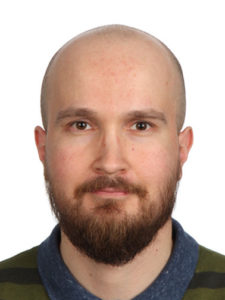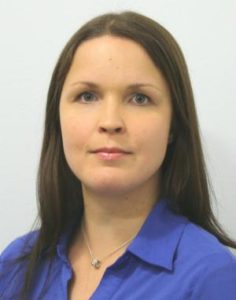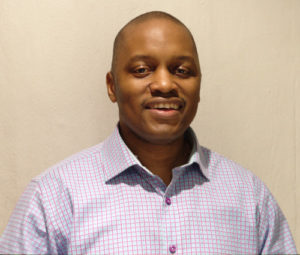W15: The 2nd Workshop on 5G-Enabled Safety and Support Services for Cooperative, Connected and Automated Mobility – CANCELLED
Co-chair: Jarno Pinola, VTT Technical Research Centre of Finland, Finland
Co-chair: Tiia Ojanperä, VTT Technical Research Centre of Finland, Finland
Co-chair: Natalia Vassileva, CTTC Centre Tecnològic de Telecomunicacions de Catalunya, Spain
Co-chair: Edward Mutafungwa, Aalto University, Finland
Abstract: Safety and support services running on top of 5G network infrastructures provide a great opportunity to enable Cooperative, Connected and Automated Mobility (CCAM) for automotive and transport verticals in a variety of road conditions and operational environments. As the rollouts of commercial 5G networks continue all over the world, the increasing coverage and continuously evolving capabilities of the technology make it an ideal connectivity platform for a variety of Vehicle-to-Everything (V2X) communication scenarios. Critical network-based services enhancing the road traffic safety can exploit the Ultra-Reliable Low Latency Communication (URLLC) services offered by 5G. Moreover, non-critical support services could leverage on Enhanced Mobile Broadband (eMBB) and Massive Machine Type Communications (mMTC) services provided by 5G networks and facilitate the operation of the intelligent road transport systems as well as the comfort and wellbeing of the drivers and passengers.
The aim of the workshop is to exploit these opportunities from several perspectives. First, the workshop distributes the latest results assessing the suitability of the currently standardized 5G functionalities in a variety of CCAM scenarios. Second, the workshop discusses the gaps identified in the existing 5G capabilities when it comes to the heterogeneous requirements, stemming from these scenarios, and offers new technological solutions to fill the identified gaps. Third, the workshop considers novel services and concepts that 5G networks would enhance the safety and performance of CCAM.
The workshop is co-organized by the EU Horizon 2020 5G-HEART, 5G-ROUTES and 5G-MOBIX projects, and the Celtic-Next 5G-SAFE-Plus project.
Co-chair Bios:
 Jarno Pinola
Jarno Pinola
Bio: Mr. Jarno Pinola works as a Senior Scientist in VTT’s 5G and Beyond Networks research team. Jarno received his M.Sc. degree in telecommunications from the University of Oulu in 2008 and is currently working towards a Ph.D focusing on open and virtualised radio access network solutions. He has contributed to numerous national and international R&D projects, which have studied, developed and tested commercial communication technologies ranging from 3G UMTS and 4G LTE to WiMAX and WLAN. His current research interests include virtualised network architectures, performance evaluation, and testing of wireless communication technologies in the 5G context. At the moment, he is working the Horizon 2020 5G-HEART project as the leader of three use case trials scenarios in the Transport vertical and acts as the main contact point for VTT’s 5G test facilities utilised in the project.
 Tiia Ojanperä
Tiia Ojanperä
Bio: Dr. Tiia Ojanperä is the leader of the Autonomous Systems Connectivity team at VTT Technical Research Centre of Finland Ltd. She received her Ph.D. (Tech.) degree on Computer Science and Engineering from University of Oulu in 2013. She has over 15 years of experience from wireless communication technology R&D, lately focusing mainly on 5G and 5G-enabled industry vertical applications. Her past research projects include, for example, Celtic-Plus VIRTUOSE, Celtic COMMUNE, and Celtic SCALNET, in which she has worked in the technical coordinator, senior scientist or project manager roles. Recently, she coordinated the Challenge Finland 5G-SAFE project (2016-2018) that conducted R&D on novel 5G enabled road safety services in collaboration with Finnish academia and industry. Currently, she is the Finnish country coordinator in the follow up project, Celtic-Next 5G-SAFE-Plus. She has published her work in scientific forums with around 40 publications to date.
 Natalia Vassileva
Natalia Vassileva
Bio: Dr. Natalia Vesselinova is a Researcher at the Centre Tecnològic de Telecomunicacions de Catalunya (CTTC), where she is actively involved in the 5G-PPP Phase 3 5G-ROUTES project. She gained her PhD in Telecommunications engineering from Technical University of Catalonia (UPC) and the Nordic Five Tech M.Sc. in Applied and engineering mathematics from Aalto University and Chalmers University of Technology. Recently, she has contributed to the Celtic Plus 5G PERFECTA project and to the Swedish SSF Time Critical Clouds (TCC) and Instant Cloud Elasticity (ICE) projects all related to 5G research. Her earlier contributions involve the ICT SHOK Future Internet project of the Finnish Funding Agency Tekes and projects related to network optimisation funded by the Spanish Ministry of Science and Technology. She is interested in solving practical, industrial problems with mathematical tools and wireless technological enablers.
 Edward Mutafungwa
Edward Mutafungwa
Bio: Dr. Edward Mutafungwa is a Staff Scientist at the Department of Communications and Networks (COMNET) of Aalto University School of Electrical Engineering. He received the Dr. Sc. Tech. degree in communications engineering from the Helsinki University of Technology TKK (now Aalto University), and the MSc in Telecommunications and Information Systems, from University of Essex, Great Britain. In his current position, Edward has multiple roles as a lecturer, researcher and project manager in various national and international projects. To that end, his recent/current project roles include project manager for the H2020 EU-Korea PriMO-5G project, Trials Work Package (WP) leader in H2020 TERAWAY project, and project manager for the Finland trial site of the H2020 5G-MOBIX project. His current research interests are on optimization of ultra-dense networks and leveraging 5G/B5G for underserved areas and critical vertical applications (e.g., connected and automated vehicles). He has authored or co-authored over 80 scientific publications and served in leadership roles in organizing committees of various (IEEE and other) international conferences.
Deadlines:
Workshop paper submissions due EXTENDED: 23 March 2022
Acceptance notification: 17 April 2022
Final paper submission due: 1 May 2022
To submit a paper to this workshop, please visit: https://vtc2022s-rr-wks.trackchair.com/track/2050
